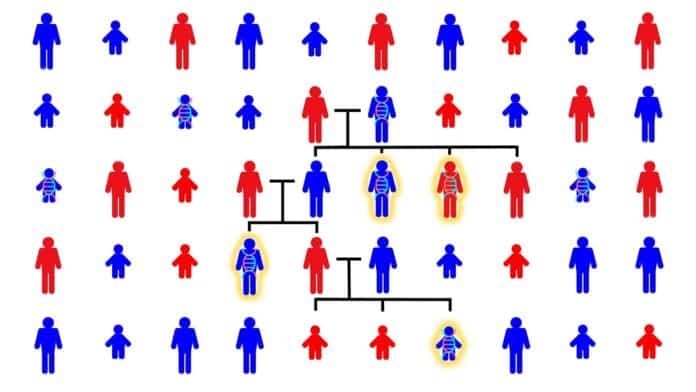A variety of neurological and developmental diseases are included in autism spectrum disorders. They can impact a person’s behavior, social interactions, learning, and communication skills. Additionally, repetitive behaviors and constrained interests can be signs of ASD.
Cold Spring Harbor Laboratory (CSHL) researchers have flipped the script on autism spectrum disorder (ASD) genetics.
Scientists long thought that siblings born with ASD share more of their mother’s genome than their father’s. But CSHL Associate Professor Ivan Iossifov and Professor Michael Wigler have shown that, in many cases, Dad might play a bigger genetic role.
Over 6,000 volunteer families gave their genomes to researchers for analysis. They discovered that siblings in families with two or more ASD sufferers had a greater proportion of their father’s genome. Less of their father’s genome was passed down to the offspring in households where only one sibling had ASD. While the finding points to a new possible cause of ASD, it also raises an interesting query. Could the same genetic principles apply to other disorders?
Nobody knows how a father’s genetics affects a child with ASD. The research team, though, has a few intriguing concepts. Scientists believe some dads may possess protective mutations that are not passed on to their offspring. Alternately, men might transmit mutations that cause the mother’s immune system to fight the growing embryo. For parents of kids with ASD and other neurological conditions like schizophrenia, both theories offer promise.
CSHL Associate Professor Ivan Iossifov said, “Our future research is exciting. If one or two of those theories prove to be true, then it opens different treatment strategies, which can, in the future, affect quite a lot of families.”
Additionally, this research provides educators and therapists with valuable resources. It might enable early identification and a deeper comprehension of autism in general.
Journal Reference:
- Wroten, M., et al., “Sharing parental genomes by siblings concordant or discordant for autism,” Cell Genomics, March 8, 2023. DOI: 10.1016/j.xgen.2023.100319
